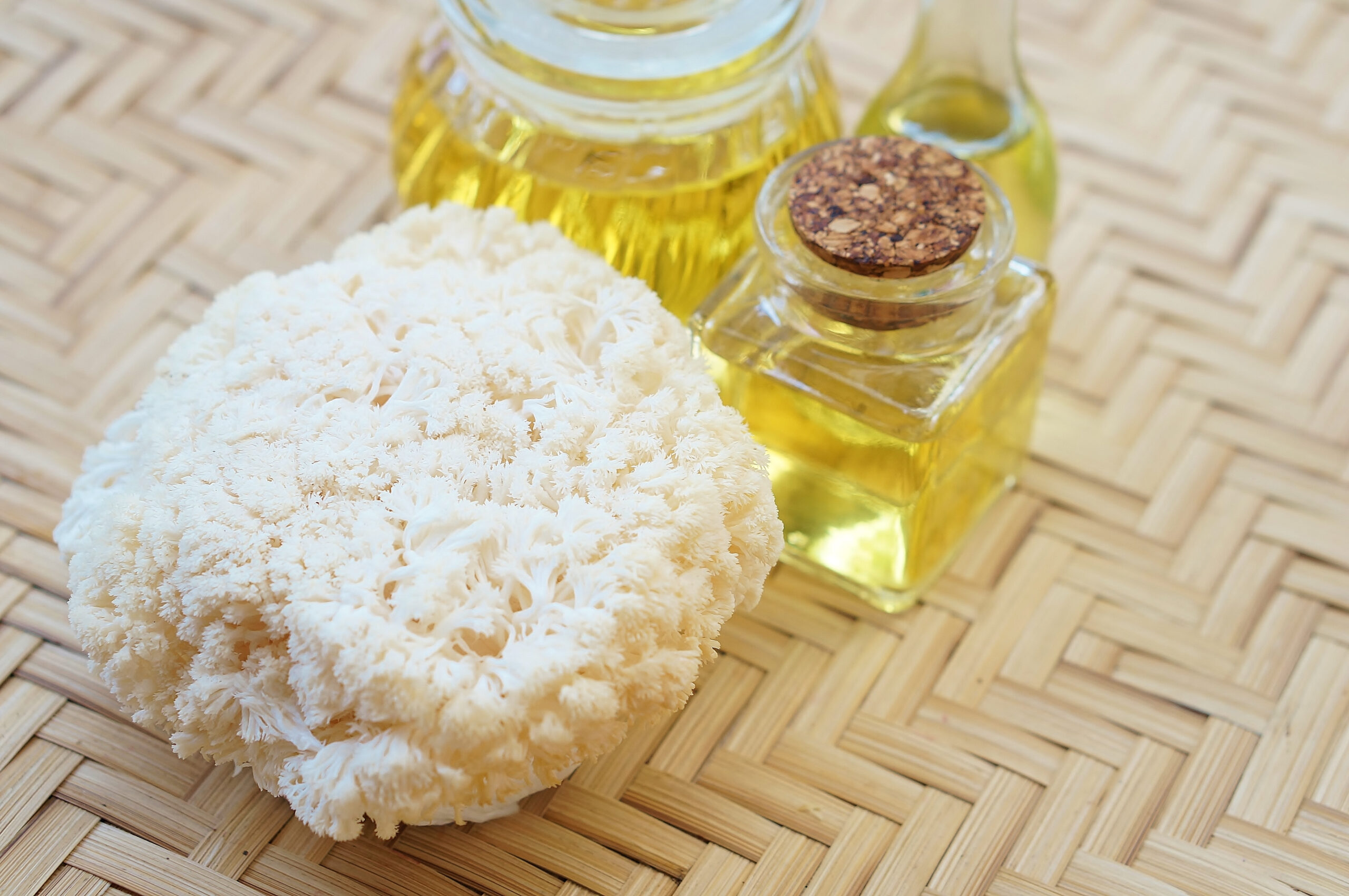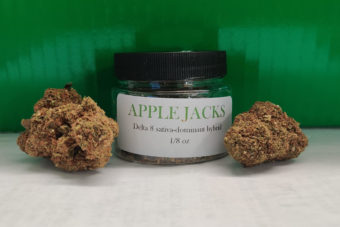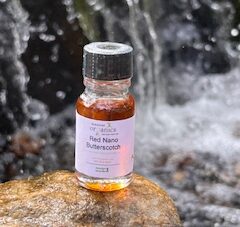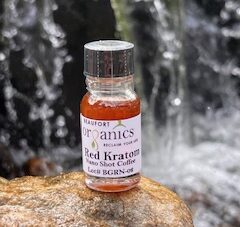
 by b-organics-admin
by b-organics-admin- Uncategorized
- October 19, 2023
- 1,150
- 0
Lion’s Mane mushroom is mainly found in forests across North America, Asia and Europe. They are from the tooth fungus family and are a descending mushroom that grows on old or dead broad leaf tree trunks, like beech or oak and has its name, because of its large and shaggy appearance. It has a long history and first got popular in Asian countries, due to its numerous nutritional and health benefits. Lion’s Mane consists of two parts: the visible fruiting body and the bottom structure, called the mycelium, which resembles roots.
Lion’s Mane Health Benefits
Lion’s Mane contains health-promoting chemicals (natural bio active compounds) found in certain plants and foods. The possible benefits of Lion’s Mane mushroom are diverse and include physical, cognitive and mental health.
The mushroom displays health-promoting benefits, such as:
Slows biological aging
Lion’s mane has anti-aging effects on the skin. Polysaccharides found in this mushroom enhance antioxidant enzyme activities and increase collagen levels.
Regulates blood sugar and protects kidney health
Consistent high blood sugar levels can lead to nerve damage in the hands and feet, kidney disease and vision loss. By blocking the activity of the enzyme alpha-glucosidase, Lion’s Mane can help reduce blood sugar levels. This way, the body is unable to digest and absorb carbs as effectively, which results in lower blood sugar levels. In addition, Lion’s Mane can help reduce diabetic nerve pain.
Promotes healthy energy levels and combats fatigue
As mentioned above, Lion’s Mane can help regulate blood sugar levels and stable blood sugar levels also help maintain constant energy. Lion’s Mane also exerts antioxidant effects on the body, fighting oxidative stress, which is a contributing factor to fatigue.
Protects heart health
Lion’s Mane can boost the metabolism and lowers triglyceride levels, which are important factors for an overall heart health. It also carries a compound (hericenone B), which can lower the rate of blood clotting.
By lowering the amount of nitric oxide, which helps to relax and dilate the vessels and expands the amount of red blood cells, Lion’s Mane can also help to lower blood pressure.
Oxidized cholesterol molecules are prone to attach to artery walls, generate them to harden and increase the possibility of a heart attack and stroke. Consuming Lion’s Mane may help with the oxidation of cholesterol in the bloodstream.
May Benefit Brain Health
Our brains ability to form and grow new connections usually decreases as we age, which explains why mental function worsens in many older adults. Lion’s Mane can promote the growth of new brain cells, which plays an important role in reducing memory loss. Oxidative stress and inflammation which lead to neurodegenerative diseases like dementia and Alzheimer’s disease, may also be prevented by supplementing with Lion’s Mane.
Promotes Brain Injury Recovery
A study has shown some optimistic results for people who’ve experienced traumatic brain injury. Lion’s Mane mushroom can exhibit neuroprotective effects against the inflammation and oxidative stress often associated with brain injury. The neurodegeneration, or progressive breakdown of nerve cells, caused by a traumatic brain injury can lead to further conditions like Parkinson’s disease. Supplementing with Lion’s Mane may reduce the effects of brain trauma and traumatic brain injury complications.
Helps relieve mild symptoms of depression and anxiety
While there are many causes of anxiety and depression, chronic inflammation could be a major contributing factor. Research has discovered that Lion’s Mane mushroom has an anti-inflammatory impact, which can reduce symptoms of anxiety and depression.
Lion’s Mane can also help regenerate brain cells and improve the functioning of the hippocampus, a region of the brain that processes memories and emotional responses, which may explain the reduction in anxious and depressive behavior.
Supports Gastrointestinal Health
Studies have shown that Lion’s Mane seems to have a positive effect on the gastrointestinal tract. It may help prevent ulcers by stopping the growth of Helicobacter pylori, a bacteria which has a negative effect on the stomach’s mucous layer. Lion’s Mane can also help to ease the pain and may protect the intestines from inflammation and inflammatory bowel diseases like Crohn’s disease.
Boosts the immune system
A strong immune system protects the body from various things like bacteria, viruses, and other disease-causing pathogens. Lion’s Mane mushroom can boost immunity by promoting the activity of the intestinal immune system, which protects the body from organism causing diseases to its host which enter the gut through the mouth or nose.
Does Lion’s Mane Have Side Effects?
Studies have shown that even with high dosage, Lion’s Mane Mushroom Products are very safe. But the most common side effects include gastrointestinal discomfort, nausea and a skin rash.
Consult your doctor before you try Lion’s Mane, if you have a medical condition or a history of asthma. Also, People with a mushroom allergy should speak with a heath care provider before consuming Lion’s Mane. Diarrhea, hives, swelling and abdominal pain are symptoms of a potentially serious allergic reaction.
Avoid using Lion’s Mane Products if you’re pregnant. Not enough research has been done to determine if any dosage is
safe during pregnancy.
How to Use Lion’s Mane
Lion’s Mane mushroom can be taken in a supplement form, such as in capsules or a powder and can be mixed with various beverages like tea, coffee or hot chocolate.
When used fresh for culinary purposes, Lion’s Mane mushroom has a mild flavor that allows it to blend with a variety of
meals and may be used as a plant-based meat substitute.
Lion’s Mane Dosage
There is insufficient evidence available as to what constitutes the ideal recommended dosage of Lion’s Mane mushroom. Dosing Lion’s Mane will come down to several factors including purpose, desired effects, and your overall health, including your age.
Research suggests though, people taking Lion’s Mane mushroom for cognitive benefits including protecting against memory loss may consider 500 milligrams taken with food or beverage.











